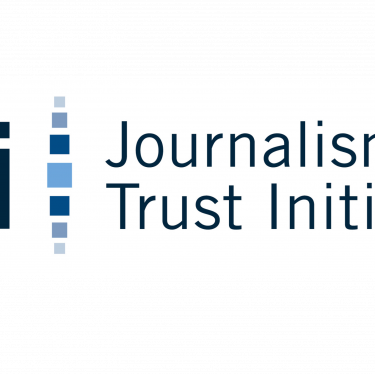JTI receives support at the Paris Peace Forum

The Journalism Trust Initiative (JTI) was featured today on a high-level panel at the Paris Peace Forum. Participants, including the European Commission’s Vice-President Vera Jourova, emphasized the importance of the Initiative to reward reliable journalism and to support a healthier information ecosystem at large.
“As disinformation is spreading online, we should offer people better tools to help them understand which sources they can trust,” Vera Jourova said. “The Journalism Trust Initiative has been developed by the media sector itself to help address this challenge. It puts forward an
interesting and promising approach. The work of journalists and independent media have to be properly recognised and rewarded. This is why the Commission is supporting this initiative.”
Craig Newmark, also participating in the Paris Peace Forum, added: “Disinformation practiced as a means of war threatens democracy everywhere, and we need trustworthy journalism to protect our democracies. The Journalism Trust Initiative can play a major role in that defence.”
Mira Milosevic, Executive Director of the Global Forum for Media Development and Daoud Kuttab, Director General of the Jordanian Community Media Network, emphasized the positive impact of the JTI also in the context of the developing world. On the occasion of the Paris Peace Forum they explained how such a self-regulatory and normative instrument, based on ISO protocols, could enhance accountability in the whole sector, in the best interests of both donors and partners in media development.
Why the JTI is needed to support reliable, trustworthy journalism
• 70% – fake news spreads faster than the truth
Researchers have found that false information is 70% more likely to be retweeted than accurate content. And one survey found that fake news reached people six times faster that real news
(source: https://science.sciencemag.org...)
• $2.6 billion a year – how much companies spend on disinformation
Those who post fake news online earn billions of dollars every year from advertising by leading brands while media all over the world are in difficulty, with news organisations fighting to stay afloat, laying off journalists and often forced to shut down.
(source:https://www.newsguardtech.com/brands-send-billions-to-misinformation-websites-newsguard-comscore-report)
• 20% or more – how much newspaper revenue is expected to fall in five years
Global newspaper industry revenue is forecast to fall from $108 billion in 2019 to $86 billion in 2024.
(source:https://www.bloomberg.com/opinion/articles/2021-01-18/can-google-facebook-fix-the-108-billion-news-industry-it-helped-break)
What makes the JTI special
Launched by Reporters Without Borders (RSF) in order to promote reliable news and information, especially online, the JTI is a machine-readable compliance-tool for journalism. It translates voluntary adherence with professional norms into a signal that can inform digital news distribution and consumption. As a result, different stakeholders are able to identify ethical journalism and reward it with reach and revenues. The JTI integrity signal can thus provide better discoverability of trustworthy sources in search and social media, but also guidance for advertisers to identify brand-safe environments.
How the JTI works
The JTI Standard is a non-proprietary benchmark for internal self-assessment and external audit of news media outlets.
It is based on a Standard for the trustworthiness of news and information, which has been developed under the aegis of the European Committee for Standardization (CEN) and published as Workshop Agreement no. CWA 17493 in December 2019. As a public good and reference, the CEN Workshop Agreement is available for download free of charge.
Its 18 clauses cover the institutional and process level of journalistic production, including specifications on ownership transparency and editorial guidelines, covering independence, accuracy and correction policies for example.
The JTI web application is an online tool for transparency and accountability. It offers a collaborative space for easy self-assessment of news media outlets, their voluntary public disclosure and, as an additional option, an external audit and certification.
The JTI Campus provides training around editorial guidelines and ethics, the exchange of best practices and assistance through a network of partners worldwide.
The JTI does not provide any ranking or scoring of journalists or content. And it does not replace existing professional norms, ethical codes or self-regulatory entities. It complements them.
A confidence tool for stakeholders of all kinds
Media of all types and sizes can use the JTI. Regulators and governments can use the JTI Standard as a benchmark for allocating subsidies to eligible media entities. Media development organisations and donors can use the JTI as tool for evaluating their partners and beneficiaries, and for capacity-building in terms of reliability, governance and editorial management systems.
The JTI can also reassure the general public about the reliability of the news and information it is seeing. The public can find out about the editorial processes that media outlets use and can give preference to those that respect journalistic ethics. This mechanism will also give a financial boost to certified media outlets when advertisers given them preference.
The JTI aims to provide an independent, transparent and systematic mechanism for dealing with the bedlam, all the disinformation and hate speech, that currently exists online.
Launched and managed by Reporters Without Borders (RSF), the JTI is supported by such partners as the European Broadcasting Union and Agence France-Presse. It is a collaborative initiative that has received contributions from more than 130 organisations and individuals representing the media, the academic world, regulatory and self-regulatory bodies, tech companies and the media development sector (including the BBC, Associated Press, Tamedia, Google and Facebook). The standard’s final adoption was preceded by a public consultation.The JTI is currently co-funded by the European Commission and through a grant provided by the U. S. based Craig Newmark Philanthropies.
